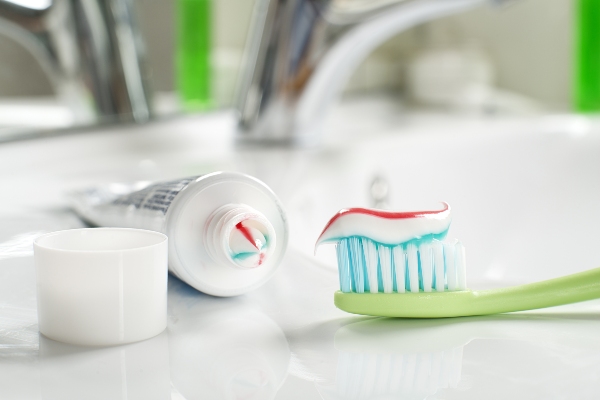 Dentistry encompasses different services and treatments. A dentist performs preventative care, exams, and various treatments like fillings, root canals, tooth extractions, crowns, and more. Dentistry also includes preventive maintenance, like brushing habits and toothpaste.
Dentistry encompasses different services and treatments. A dentist performs preventative care, exams, and various treatments like fillings, root canals, tooth extractions, crowns, and more. Dentistry also includes preventive maintenance, like brushing habits and toothpaste.
What are the different types of toothpaste?
When it comes to oral health, every person has different needs. While some patients may require toothpaste that can slow the decay rate, others may require toothpaste that prevents tartar buildup because of a medical condition. Patients may find the following toothpaste types most often.
Fluoride toothpaste
Toothpaste containing fluoride remineralizes tooth enamel. It bonds to the areas of decay and attracts calcium and other minerals to the site. Additionally, it prevents further corrosion from forming. While fluoride cannot reverse cavities, it can slow the rate of cavities. Dentists may provide high-fluoride toothpaste to patients who have extensive damage. Many kinds of toothpaste contain fluoride in varying amounts.
Children’s toothpaste
Children's toothpaste is different from adult toothpaste. One of the main differences is that children's paste has less fluoride than adult paste. Exposing children to too much fluoride can cause the development of white spots known as fluorosis. Fluorosis occurs if the teeth below the gumline are still developing.
Children also tend to be more resistant to having to brush their teeth. Children's toothpaste tends to have child-friendly flavors or cartoon characters on the bottle.
Whitening toothpaste
While standard toothpaste may remove some surface stains, whitening toothpaste aims to make smiles even whiter. Teeth experience stains on the surface and inside the tooth. Different formulas of whitening toothpaste address different stains. For teeth with surface stains, an abrasive ingredient called silica scrubs the surface stains away. For deep stains, toothpaste may include hydrogen peroxide to bleach the teeth.
Tartar control toothpaste
Tartar is rough, yellow deposits that appear on the gumline. Tartar develops from plaque left on the teeth. Plaque absorbs phosphates and calcium to harden into tartar.
Tartar control toothpaste contains ingredients to fight tartar. Often the paste has an abrasive to remove sticky plaque on the surface. The abrasives polish teeth without causing damage to the enamel. Anti-calculus agents delay plaque calcification. This allows you to remove plaque through brushing to prevent tartar buildup.
Desensitizing toothpaste
Many dental patients suffer from tooth sensitivity. When someone struggles to eat or drink foods on either side of the hot and cold spectrum, they likely have sensitive teeth. Tooth sensitivity tends to occur when the enamel wears down and exposes the dentin.
Toothpaste aimed at sensitive teeth includes three different ingredients: Potassium nitrate, fluoride, and strontium chloride. Potassium nitrate blocks pain transmissions, fluoride strengthens the teeth, and strontium chloride blocks the dentinal tubules openings so hot and cold do not reach the nerve.
Conclusion
Preventative care is a focal point of oral health. When it comes to dental health, regular brushing is necessary to retain healthy teeth. Every person has different needs for their teeth. Preference and oral health needs may determine a person's toothpaste choice.
Request an appointment or call North Georgia Smiles at 770-889-7867 for an appointment in our Cumming office.
Related Posts
Dentistry is concerned with diagnosing, preventing, and treating diseases, disorders, and conditions of the oral cavity and adjacent and related structures and their impact on the human body. Often, dentists will recommend extraction to remove a tooth due to decay, pain, or other factors which could lead to future health issues, possible loss of teeth,…
Many people still have mistaken beliefs about general dentistry. As is often the case with misinformation, it can be very persistent. Myths are often more well-known than facts.One way to find out the truth behind the myths is to visit a dental office frequently and ask questions of the dentist and hygienists. You can trust…
Dentistry has become increasingly popular in recent years, with more people wanting to maintain their pearly whites than ever before. No longer just limited to treating tooth decay and removing cavities, practitioners can also provide cosmetic dentistry treatments to help you achieve that beautiful smile you've always wanted. If you want to learn more about…
